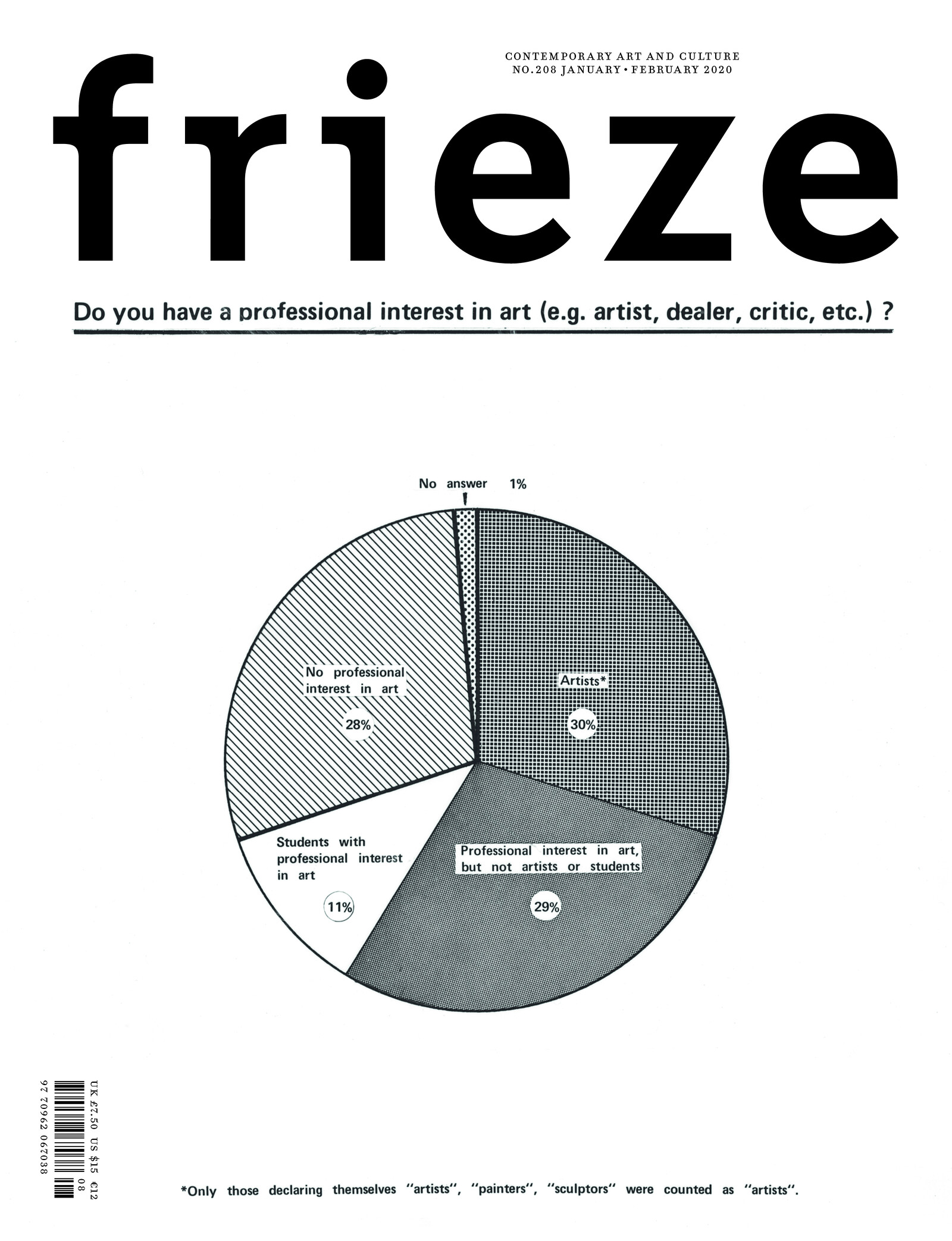“‘Disruption’ has been the ambivalent watchword of the 2010s, which has been a decade of grappling with profound societal, political and economic change.” –Amy Sherlock
The January/February issue of frieze looks at some of the most significant cultural shifts of the past decade through the public figures, technologies and companies that have embodied them. We lead with a feature on Hans Haacke, whose current retrospective at the New Museum is a reminder that the current scrutiny of museum ethics is long overdue, and an essay on the art world’s addiction to flying, asking why, in a time of climate crisis, we all still do it. Plus, we profile five young artists to watch for 2020: Jamie Crewe, Lauren Halsey, Rodrigo Hernández, Thảo-Nguyên Phan and Sung Tieu.
Machine Politics: Hans Haacke
“Haacke was even ahead of the curve when it came to being ‘cancelled’—not by online critics, but people with real power.” Alyssa Battistoni takes a close look at Hans Haacke’s longstanding and newly timely scrutiny of art-world ethics, asking what it means for the father of institutional critique to be showing at a museum that has recently been under fire over a contract fight with its newly unionized workforce.
Vanity & Vapour Trails: the art world’s addition to flying
“We are all implicated in making travel aspirational, for accepting the idea that living ‘between’ places is more cosmopolitan, more creative, than settling for just one.” Kyle Chayka responds to a slew of recent climate literature on flying, evaluating the extent to which writers can practise what they preach.
Also featuring:
Amy Sherlock on the 50-year career of Ulrike Ottinger, a hero of the queer avant-garde whose new film, Paris Calligrammes (2019) will be released in March. A life drawing session by Paul McCarthy, recorded in a set of photos and drawings for the issue’s visual essay. Shiv Kotecha on Nayland Blake, an artist and educator whose work revels in the infinite variations of identity and power. Jonathan Griffin on Lauren Halsey, an artist whose community-based work in South-Central Los Angeles leans towards the funky, the funny and the queer. Johanna Hedva on Jamie Crewe’s latest film, which mines horror conventions to question subjecthood. Kito Nedo on Sung Tieu’s videos and installations, which explore the politics of sound. Barbara Casavecchia on Rodrigo Hernández’s papier-mâché sculptures. And Rowan Hisayo Buchanan on folk tales, ghost stories and the soft voices of Vietnamese history, as witnessed through the films of Thảo-Nguyên Phan.
Columns and Reviews:
Tom Morton offers some suggestions in response to the International Council of Museums’ recent attempt to establish a definition of “museum” fit for the 2020s; Lynne Tillman pens an essay on the punchline; Orit Gat reviews the best of the decade’s memes; Evan Moffitt reflects on how Grindr changed gay life; Andrew Durbin celebrates a decade of Lady Gaga and the failure of her 2013 record Artpop; Pablo Larios suffers a more acute sense of the “Network Fatigue” he described in his eponymous 2014 frieze essay; Will Wiles reflects on the rise and fall of millennial-oriented, co-working empire WeWork; and Jennifer Higgie reviews the January/February 2010 issue frieze, considering where our predictions went wrong and what never seems to change.
Plus, 36 reviews from around the world, including Mark Leckey at Tate Britain, London, and three shows responding to Berlin’s urban crisis.
Answering our questionnaire is award-winning French writer Annie Ernaux.
Subscribe now and explore more than 25 years of writing on frieze.com.

